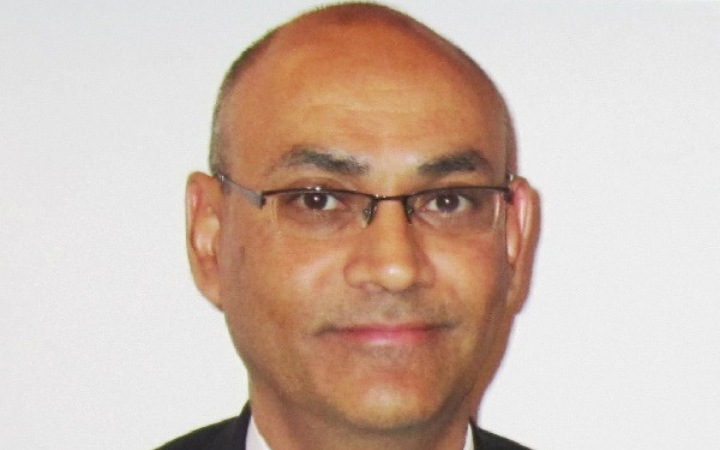Sanjaya Bhatia
Title: Head of Office, UNDRR Office for Northeast Asia and Global Education and Training Institute
Country: Republic of Korea
Partnership: e-learning courses on Disaster Management at Local Level
If we learnt one thing from history is that we cannot achieve sustainable development without taking Disaster Risk Reduction (DRR) seriously. Sanjaya Bhatia, who oversees the capacity development work of the United Nations Office for Disaster Risk Reduction (UNDRR), knows it from experience. Sanjaya started his career in the civil service in India working in the districts, which are small local government entities. He enrolled in all kinds of activities focusing on social and economic development and frequently saw the devastating consequences of disaster situations. “There would be a flood, a drought, or some sort of disaster event and people who were moving out of extreme poverty would then be pushed back again”, he recalls adding that the destruction of infrastructure, such as roads, bridges, canals, and so on would also result in economic hardship along the way.
After acquiring some experience in disaster response and relief during his civil service, Sanjaya was nominated to be the focal point on a new Disaster Risk Management (DRM) programme in India carried out in partnership with the United Nations Development Programme (UNDP). The initiative was very successful and marked the starting point of Sanjaya’s career as a specialist in DRR. Now Sanjaya also manages UNDRR’s Global Education and Training Institute (GETI), which has the mandate to provide capacity building to mainstream DRR and climate change adaptation into sustainable development. Through GETI, Sanjaya can share his and his teams’ expertise with public officials looking to further develop their skills in DRR. “My experience in India allowed me to see from governments’ perspective and understand how they operate. Now that I work on training for DRR, which is primarily dealing with local and national governments and civil servants, I can connect with them and show that DRR is an investment and not a cost”, he reflects.
Furthermore, Sanjaya also counts on UNITAR’s support in the development and delivery of some of GETI’s training. In fact, the collaboration between UNDRR and UNITAR goes back to 2015, when the third United Nations World Conference on DRR took place in Sendai, Japan.
Together we developed a training programme on DRR focused on local government named ‘Making Cities Resilient: Developing Local Disaster Risk Reduction and Resilience Strategies’, which was launched in that same year. As time progressed, we converted the training into an online and self-paced course and also developed and launched its Spanish version.
The partnership continued and in 2019 UNITAR upgraded the training platform, which gave the possibility of delivering even more inclusive courses. “UNITAR approached us and said that there was the opportunity to make the training programme accessible to those with hearing impairment”, Sanjaya tells. UNDRR gladly accepted the proposal and the updated version of the course became available in 2020, reaching 299 beneficiaries that year.
Still in 2020, when the COVID-19 pandemic hit globally, UNITAR converted a module of the training programme covering health emergencies in the context of disasters into an online course and made it available to everyone free of charge. The course became very popular amongst practitioners, DRR specialists, urban resilience specialists and even senior-level officials from local governments because, as Sanjaya stresses, “health emergencies are included in DRR, and the COVID-19 outbreak definitely falls under the definition of a disaster. The lockdowns to control the spread of the disease, the vaccination programmes – of which the role out primarily depends on the local governments – and the layout of recovery plans are part of the strategies governments have taken to minimize the impact of this health disaster”. Due to the high demand for the e-learning course, UNDRR also decided to organize webinars on topics related to the course, providing an opportunity for participants to engage also in interactive and live discussions.
Now UNDRR is looking into the possibility of transforming a training programme on DRR focused on national governments into an online and self-paced course and hopes to count on UNITAR’s support in making this project a reality. We will be thrilled to continue this partnership and help improve DRR skills for a more sustainable and safer future for all!
...........
UNITAR-UNDRR online training courses on Disaster Management at Local Level are available here.


